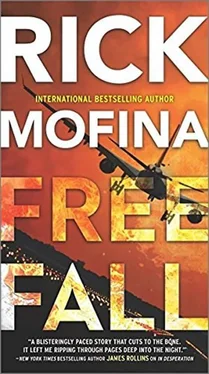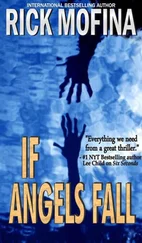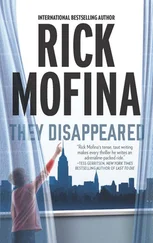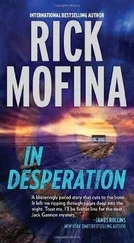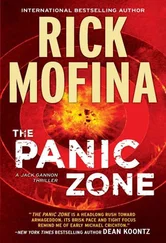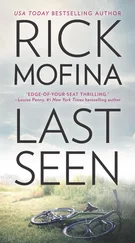“Have you received any other communication from the sender?” Sanchez asked.
“Nothing.”
“Would you be able to forward me the email to this address?” Sanchez took out a business card and jotted down an email address.
“I’ll check with my editors.”
“While you’re at it, would Newslead allow our Computer Analysis and Response Team access to your system, if we need it?”
“I can’t answer that. They may prefer you seek a warrant. Agent Sanchez, what do you think? Is the email legitimate?”
“Impossible to say at this stage. We’ll have to assess it.”
“Assess it for…?”
“Credibility and believability. We’ll examine the identity given, this ‘Zarathustra, Lord of the Heavens.’ We don’t know if this is simply a disturbed individual, a false alarm, or someone with the skills and resources to carry out the threat, or someone affiliated with a terrorist network. We’ll assess it and run it through several databases to determine its validity. Those are the first steps.”
“Then what?”
“There’s a lot more after that. If we think it has substance, we’ll pull in every resource we have. We’ll alert the NTSB, work with them, call in other agencies if we have to. We’ll track down the sender and secure the safety of travelers and bring forth the appropriate charges. As you know, just making the threat is a criminal act.”
“Is the FBI aware of this person sending similar threats to other news organizations?”
“Not to our knowledge,” Sanchez said. “You’re the first to bring this to our attention at this office.”
“Would you assure Newslead that you will not make this public, or share it with other news agencies?”
“We’ll keep it confidential, unless circumstances change.”
“But you’ll keep us informed along the way?”
“We’re getting into hypothetical areas. If an investigation is warranted, we’d need to protect its integrity.”
“But would you respect the fact that it’s Newslead’s tip and we’d want to report on it exclusively if this goes anywhere?”
“You want an exclusivity deal.”
“That’s right.”
“We’ll leave that for the people here at a higher pay grade to sort out,” Bartell said.
“What we’ll do,” Sanchez said, “is advise our supervisors that you came to us and you’re cooperating. At this stage we’d ask that you not report on any aspect of this note.”
“Newslead can’t surrender editorial control to the FBI. But given that there’s a public safety issue here, Newslead wants to take the proper approach.”
“All right, then. Thank you for bringing this to our attention.” Sanchez stood to leave.
“Wait, one last thing. What’re the chances that this note is real?”
“It’s anyone’s guess at this point,” Sanchez said. “The FBI receives upwards of a thousand tips a day. Everything from reports of a package left on the street, to an unstable person on a plane planning to do harm, to people overhearing someone plotting to assassinate the president. We review them all. This one will be no different. It could be someone trying to lay claim to the event. Or it could be an authentic communication from the person responsible for the problems with the flight, boasting that they have the means to carry out their threat. Until then, the truth about your sender remains a mystery.”
“With time ticking down on us,” Kate said.
* * *
Kate stepped off the elevator and was walking through the lobby when she heard someone say, “Kate? Kate Page?”
She turned to see FBI Special Agent Nick Varner pulling away from a group of people heading to the elevator doors.
“I’ll catch up with you guys,” Varner called to the group as he approached her. “It’s been a long time. You’re looking good. How’ve you been? Sorry, I’ve only got a moment, but what brings you here?”
Kate and Nick had worked together on a major kidnapping story nearly a year ago, and she trusted him completely. Varner looked good in his suit. He’d just hit forty and still had his Brad Pitt thing going strong, she thought. His eyes were sharp and he listened intensely as she related everything about the Zarathustra threat to him, telling him what she’d told the other agents.
“I know Ron Sanchez. I work with him.” Varner reached into his pocket for a card and pen, making notes before passing it to her. “I’m strictly task force now. Here’s my new number and private contact information. Keep me in the loop. Maybe I can help.”
Elevator doors chimed and he turned.
“Gotta go,” he said as he headed for the elevator. “Good seeing you. Keep in touch, Kate.”
Manhattan, New York
Logan Dunn studied the website for the Buffalo News on his phone while waiting at the Port Authority Bus Terminal in Midtown Manhattan.
He concentrated on a wire story the News had carried under the headline:
Pilot of Troubled EastCloud Buffalo-to-NYC Flight: Malfunction Puts Passengers at Risk.
He’d read it several times, coming back to the statements by Raymond Matson, the captain:
I don’t know what happened but I know something went wrong. This was a clear flight control computer malfunction.
Damn right something went wrong.
Logan reached up to relieve an itch on his temple, touching the bandages covering the cuts he’d received on the flight. Then he went to the video he’d recorded.
It started with Kayla at her window seat, anxious but winning over her fear of flying, when the jetliner suddenly rolled hard, the right wing tipping toward the ground, passengers screaming for their lives as bodies and items were tossed like they were in a blender. The horror was repeated as the plane suddenly lurched to the left, throwing people to the opposite side as the jet leveled, then took a sudden death dive before the crew regained control.
Somehow, throughout the chaos and panic, Logan had managed to hang on to his phone and keep recording.
In the aftermath, when paramedics had taken him, Kayla and the other passengers to the hospital for observation, he’d alerted Kayla’s parents, and his, that they’d been shaken but not seriously hurt.
Like the other passengers, Logan and Kayla had cooperated with the NTSB and EastCloud Airlines, providing statements. The NTSB and EastCloud wanted him to share his video and not make it public, stating that it would help with the investigation.
But Logan had refused to share it.
He wanted to help but he was hesitant. Word had circulated among the passengers that while many had still pictures and video taken after the incident, Logan was the only person whose footage had captured the entire event as it had happened. He’d called one of his law professors and told him about the flight with Kayla, his video and the circumstances.
The video is essentially your property, the professor had said. I understand you’d want to help investigators because of the safety issues, but you might want to consider making your recording public first before sharing it with the NTSB and the airline. It would strengthen a civil case should you proceed with an action, and I would think you and Kayla have a very strong case.
But that was the problem.
Kayla didn’t want Logan to release the video.
Her reasoning ranged from It’s too frightening, to My screaming is embarrassing, to It could have an impact on my hope of ever getting a job with Maly Kriz-Janda. Her opposition was irrational, but Logan understood. She’d been traumatized by the incident.
He looked down at Kayla now, her head resting on his chest as they waited at the bus terminal. Her chin was bandaged. Bruises dotted her neck and arm. He thought of how much the job at the fashion designer had meant to her, how hard she’d worked in school to pursue her dream. He thought of all she’d done to alleviate her fear of flying-the books, the recordings-and his heart ached for her.
Читать дальше
Конец ознакомительного отрывка
Купить книгу
